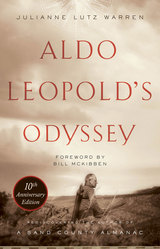
A decade later, as our very concept of wilderness is changing, Warren frames Leopold’s work in the context of the Anthropocene. With a new preface and foreword by Bill McKibben, the book underscores the ever-growing importance of Leopold’s ideas in an increasingly human-dominated landscape.
Drawing on unpublished archives, Warren traces Leopold’s quest to define and preserve land health. Leopold's journey took him from Iowa to Yale to the Southwest to Wisconsin, with fascinating stops along the way to probe the causes of early land settlement failures, contribute to the emerging science of ecology, and craft a new vision for land use.
Leopold’s life was dedicated to one fundamental dilemma: how can people live prosperously on the land and keep it healthy, too? For anyone compelled by this question, the Tenth Anniversary Edition of Aldo Leopold’s Odyssey offers insight and inspiration.
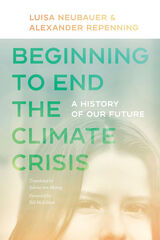
“Act as though your house is on fire. Because it is.” Following Greta Thunberg, millions of young climate activists have been taking to the streets around the globe as part of the Fridays For Future movement. They demand that we “unite behind the science,” as, for too long, climate scientists have been ringing the alarm bells about rising temperatures, tipping points, and the devastating consequences of extreme weather—but politicians do nothing.
So how do you begin to end the climate crisis? Luisa Neubauer and Alexander Repenning begin by telling stories. Neubauer cofounded the youth climate activist group in Germany and has become its most prominent voice. In this book she and Repenning weave in personal accounts of their evolution as climate activists with a thorough analysis of how climate change impacts their generation, and what every one of us can and must do about it. The young and old in the United States and around the world can learn valuable lessons from their European counterparts.
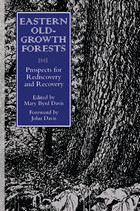
Eastern Old-Growth Forests is the first book devoted exclusively to old growth throughout the East. Authoritative essays from leading experts examine the ecology and characteristics of eastern old growth, explore its history and value -- both ecological and cultural -- and make recommendations for its preservation.
The book provides a thorough overview of the importance of old growth in the East including its extent, qualities, and role in wildlands restoration. It will serve a vital role in furthering preservation efforts by making eastern old-growth issues better known and understood.

In this volume, prominent Buddhist scholar Donald Swearer posits that the future requires a radical shift toward living in recognition of the interdependence of all life forms and the consequent ethic of communality and a life style of moderation or “enoughness” that flows from that recognition, which he calls “an ecology of human flourishing.” Swearer has assembled world-class thinkers to explore and imagine several dimensions of an ecology of human flourishing: economic, sociological, religious, ethical, environmental, historical, literary; how notions of human flourishing, quality of life, and common good have been constructed; and, in the contemporary world, how they are illuminated or are challenged by issues of distributive justice, poverty and economic inequality, global health, and environmental sustainability.
With contributors ranging from ecoactivist Bill McKibben and medical anthropologist Arthur Kleinman, to transformative theologian Sallie McFague and Malaysian critic of global injustice Chandra Muzzafar, this book expresses ethical and religious aspirations to remake the world in the midst of the contradictions, injustices, and problems of our daily lives and today's global economic and climate crises.
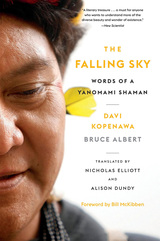
The 10th anniversary edition
A Guardian Best Book about Deforestation
A New Scientist Best Book of the Year
A Taipei Times Best Book of the Year
“A perfectly grounded account of what it is like to live an indigenous life in communion with one’s personal spirits. We are losing worlds upon worlds.”
—Louise Erdrich, New York Times Book Review
“The Yanomami of the Amazon, like all the indigenous peoples of the Americas and Australia, have experienced the end of what was once their world. Yet they have survived and somehow succeeded in making sense of a wounded existence. They have a lot to teach us.”
—Amitav Ghosh, The Guardian
“A literary treasure…a must for anyone who wants to understand more of the diverse beauty and wonder of existence.”
—New Scientist
A now classic account of the life and thought of Davi Kopenawa, shaman and spokesman for the Yanomami, The Falling Sky paints an unforgettable picture of an indigenous culture living in harmony with the Amazon forest and its creatures, and its devastating encounter with the global mining industry. In richly evocative language, Kopenawa recounts his initiation as a shaman and first experience of outsiders: missionaries, cattle ranchers, government officials, and gold prospectors seeking to extract the riches of the Amazon.
A coming-of-age story entwined with a rare first-person articulation of shamanic philosophy, this impassioned plea to respect indigenous peoples’ rights is a powerful rebuke to the accelerating depredation of the Amazon and other natural treasures threatened by climate change and development.
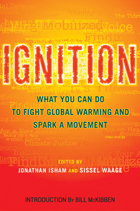
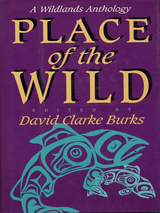
Where and what is the place of the wild? Is the goal of preserving biodiversity across the landscape of North America compatible with contemporary Western culture?
Place of the Wild brings together original essays from an exceptional array of contemporary writers and activists to present in a single volume the most current thinking on the relationship between humans and wilderness. A common thread running through the volume is the conviction that everyone concerned with the natural world -- academics and activists, philosophers and poets -- must join forces to re-establish cultural narratives and shared visions that sustain life on this planet.
The contributors apply the insights of conservation biology to the importance of wilderness in the 21st century, raising questions and stimulating thought. The volume begins with a series of personal narratives that present portraits of wildlands and humans. Following those narratives are more-analytical discourses that examine conceptions and perceptions of the wild, and of the place of humanity in it. The concluding section features clear and resonant activist voices that consider the importance of wildlands, and what can be done to reconcile the needs of wilderness with the needs of human culture.
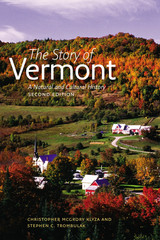
READERS
Browse our collection.
PUBLISHERS
See BiblioVault's publisher services.
STUDENT SERVICES
Files for college accessibility offices.
UChicago Accessibility Resources
home | accessibility | search | about | contact us
BiblioVault ® 2001 - 2024
The University of Chicago Press









